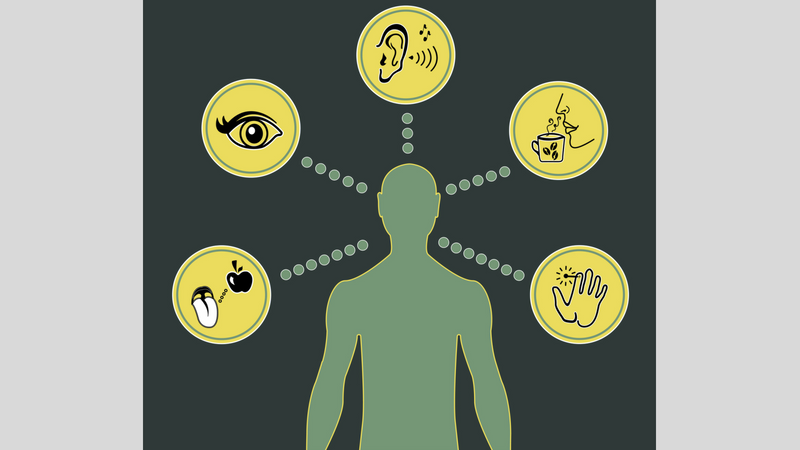Wise Mind Keeps Us Balanced
When we got to the topic of Wise Mind, my love of DBT solidified. It’s no secret how much I love Dialectical Behavioral Therapy and the skills I’ve learned through these classes. In DBT, I gained valuable life skills that have helped me recover from bipolar depression, manage my moods better overall, improve my relationships, and generally live a better and more fulfilling life. I am forever indebted to Marsha Linehan, the creator of DBT.
So when we got to the idea of different types of mindsets, it was particularly helpful for me. Linehan suggests that we primarily have two mindsets: Reasonable Mind and Emotion Mind. Finding the balance between these two results in the third mindset: Wise Mind.
Mindset One: Reasonable Mind
In Reasonable Mind, we live in a highly analytical state. We can think of it almost as being a scientific or engineering state of mind. We focus on tasks, ruled by facts, reason, and logic. The character Spock from Star Trek was held up as an example of someone who lives in Reasonable Mind. They come across as being cool and detached. Those of us living in Reasonable Mind like having everything in order. As my mother would tell me, “Everything in its place.”
There are benefits to Reasonable Mind. It helps us look at situations and come up with solutions. Often, it’s a problem-solving mindset, which can be helpful (especially in particularly tense situations).
While there are benefits, however, there are also drawbacks to living in Reasonable Mind. We can become over-controlling and perfectionist, which becomes stressful for those around us. Also, in order to be driven by logic, we have to suppress our emotions. Many times that means holding on to anger, which later erupts in unhealthy ways. Workaholics tend to live in Reasonable Mind, as well.
Additionally, we tend to isolate ourselves because we struggle to understand how others don’t see a situation the same way we do. We struggle to make connections because we cut ourselves off from our emotions. And, in our desire to be logic-driven and to get to the right answer, we can become over-thinkers. Sometimes, this results in anxiety issues because our brain just can’t turn itself off.
Mindset 2: Emotion Mind
Balancing Reasonable Mind is Emotion Mind. Emotion Mind is the polar opposite: Whereas those in Reasonable Mind are logic-driven and highly analytical, people in Emotion Mind fly by the seat of their pants and respond to the emotions the situation grants them. We are ruled by our moods, feelings, and urges, and facts and logic are deprecated in their importance.
The benefits of living in Emotion Mind are many and strong. Think of nurses and those who rescue animals: there’s no logical benefit to much of the work they do, and yet they do it. (This is not to say that these people live permanently in Emotion Mind, just that those professions are good examples.)
People living in Emotion Mind are often charming and kind, passionate, loving (and lovable!), and chatty. They can be some of the best people to be around.
However, being emotion-focused can lead to some challenging behaviors. We become impulsive and highly-reactive. Like the cartoon character Yosemite Sam, we spout off and live the full extent of the emotion we are feeling at the moment.
The emotions are so strong that our coping mechanisms to ease and appease our feelings may include throwing things, screaming and yelling, seeking solace in substances, overspending or indulging in risky sexual behaviors, self-harm, and excessive rumination or obsessing over the situation. Our thinking is out-of-control, and pulling ourselves back is a difficult task.
There are a few known triggers for putting us into Emotion Mind, and I’m sure you can guess most of them. Challenges in relationships (like arguments) are one, as is financial or career stress (especially unemployment). Chemical (or substance) use or abuse is well-known to trigger a shift into Emotion Mind, as are abnormal sleep patterns (too little or too much), nutrition or hunger issues, and either not taking our pills or being on the wrong medications.
Beyond these known triggers, it can be hard to remain rational when we live with chronic pain or poor health, or disruptions to our usual routine (such as travel or experiencing grief).
The Balancing Mindset: Wise Mind
As we can see, there are pros and cons to both Reasonable and Emotion Minds. It is easy to see how each is beneficial to us: The Reasonable Mind reliance on facts and logic helps us make decisions, while the Emotion Mind helps us connect warmly and compassionately with others. Making use of these benefits lands us in the important overlap area called “Wise Mind.”
Many of us grew up understanding this balance as the virtue “wisdom.” It’s the coming together of both sides of our brain and discovering the middle path. Sometimes, we need to make a decision divorced of emotion, such as ending a relationship or selling a house. Sometimes, it is better for us to pick a less palatable solution to maintain relationships.
Bringing together these two states of mind helps us find what Linehan calls “the middle path.” We honor both sides of our true selves in Wise Mind, understanding the best resolution to a situation for us and recognizing the emotions that come with the situation and its outcome.
Here’s an example: My mother loves me dearly, but our relationship is rarely smooth. She loves my work here with Wounded Birds Ministry and my faith but struggles to read anything related to them. It hits her on a deep and personal level, and sometimes she thinks I’m expressing frustrations or challenges with her (and her mothering style) when I’m making a generic case. It’s caused friction in our relationship.
It wasn’t until recently that I understood the severity of the dynamic. I want to maintain my relationship with my mother, but the tension was a challenge for me to handle. I felt like I was on tenterhooks around her, never knowing what I might say that would lead to a sharp comment. It put me right into Emotion Mind every time, and it was no fun for anyone in the room.
I was expressing frustration and concern over the situation with my husband, who helped pull me into Wise Mind. He looked at the facts of the case and pointed out that she only makes those comments over something I say about the Ministry or my faith. (She is also a strong Christian, and we have some differing theological beliefs.) Using logic, he suggested that I stop discussing those topics with her altogether.
By helping me get to Wise Mind, he helped me see the situation more logically. I acknowledged that he is right, and I need to make those topics off-limits with her. Emotionally, I recognize that this change will be hard for both of us. She’s still proud of me and the work I do and wants to support me in it, although she struggles to do so in a way that makes her feel safe and me supported. On my side, I want my mother’s love and support, and I don’t want to isolate any parts of my life from her.
However, recognizing the challenge between us, I’d rather keep the relationship healthy and not bait an argument. I feel sad and disappointed that this is the situation between us, but happy that there’s a solution that lets us stay in a relationship.
This is what Wise Mind is and how it works for us. It helps us see our experiences and situations from a neutral place and recognize that the emotions associated with them are real and valid. We become empowered to make better and healthier decisions when we use our Wise Mind.
Changing our mindset from Reasonable Mind or Emotion Mind to Wise Mind is not always easy. Sometimes, it takes a lot of therapy and self-examination to get to a place where we can access the alternate mindset and the benefits it brings us. Sometimes, like for me, it takes an experience like my DBT class and having outside counsel (in the form of my husband), to move into Wise Mind.
Knowing that Wise Mind exists gives us hope that we can have healthier relationships and a better life overall. We are not stuck where we are. There is hope for all of us.
What mindset do you typically live in? How do you move into Wise Mind? What benefits do you get from it?
Looking for daily inspiration and community? Join our warm and supportive Facebook group!









